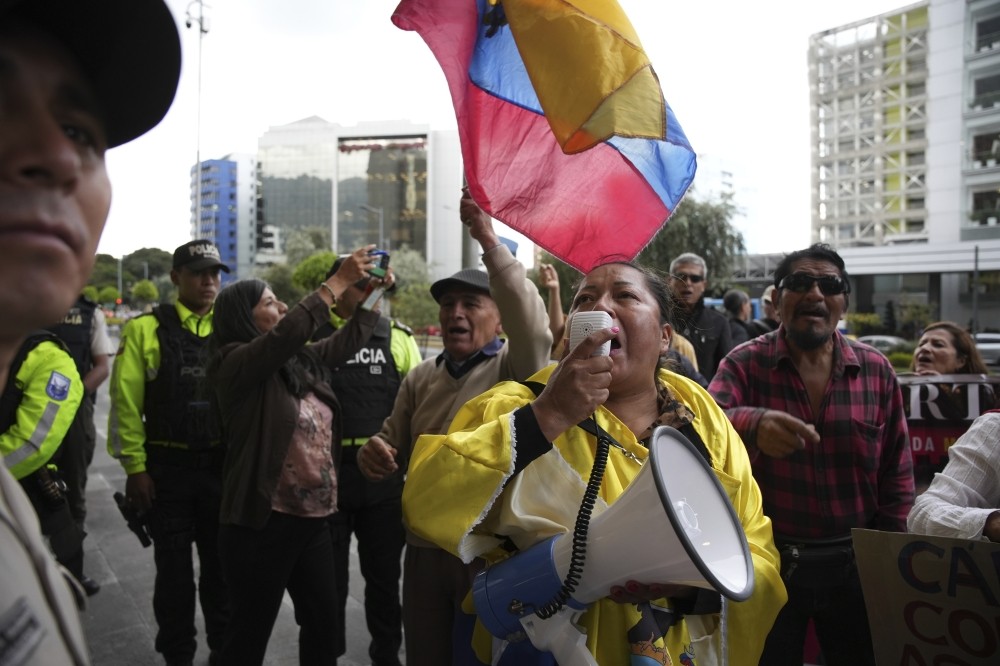13/07/2024
13/07/2024

QUITO, Ecuador, July 13, (AP): The two instigators of the 2023 assassination of Ecuadorian presidential candidate Fernando Villavicencio were sentenced on Friday to 34 years and eight months in prison.
Three accomplices were sentenced to 12 years in prison. The Prosecutor’s Office had requested the maximum sentence for the five defendants.
The sentences for the man and woman convicted of instigating the murder included a fine of $460,000 and a compensation payment of $100,000 by each to the politician's family. The other three defendants were each fined $156,400 and ordered to pay $33,000 to the family.
Villavicencio, 59, was killed by gunmen on motorcycles last Aug. 9 as he left a school in Ecuador’s capital, Quito, after a campaign rally. Thirteen people were injured.
The candidate had previously reported receiving threats, but authorities have never said anything about the motive for the killing.
As the judges announced the sentence, family and friends of Villavicencio demonstrated in the capital, Quito, carrying posters, his photographs and flags in calling for justice and prison for all those responsible.
According to the prosecutor’s office, one of the instigators, Carlos Angulo, alias "Invisible,” coordinated the murder from a prison where he was held in Ecuador and gave instructions by video conference to another person for the execution, which was recorded in their cellphones. The latter has not been tried.
Laura Castillo, the other instigator, was described as being in charge of providing the gunmen with logistical elements including motorcycles and money.
The three accomplices - Erick Ramírez, Víctor Flores and Alexandra Chimbo - were in charge of alerting the actual killers of the victim’s movements, prosecutors said.
A total of 13 people were accused in the case, including several Colombians who after being arrested were murdered last October in prisons in Guayaquil and Quito where they were being held during the investigation.


